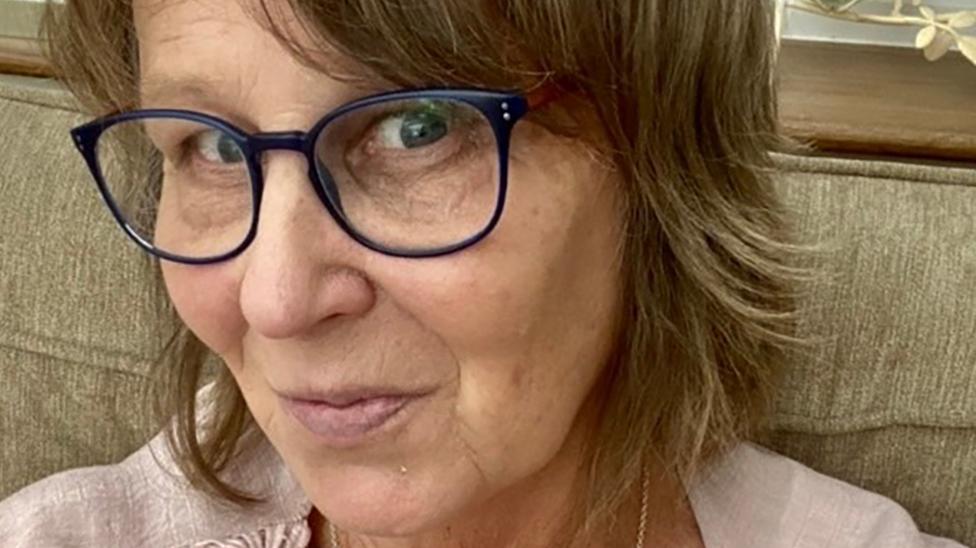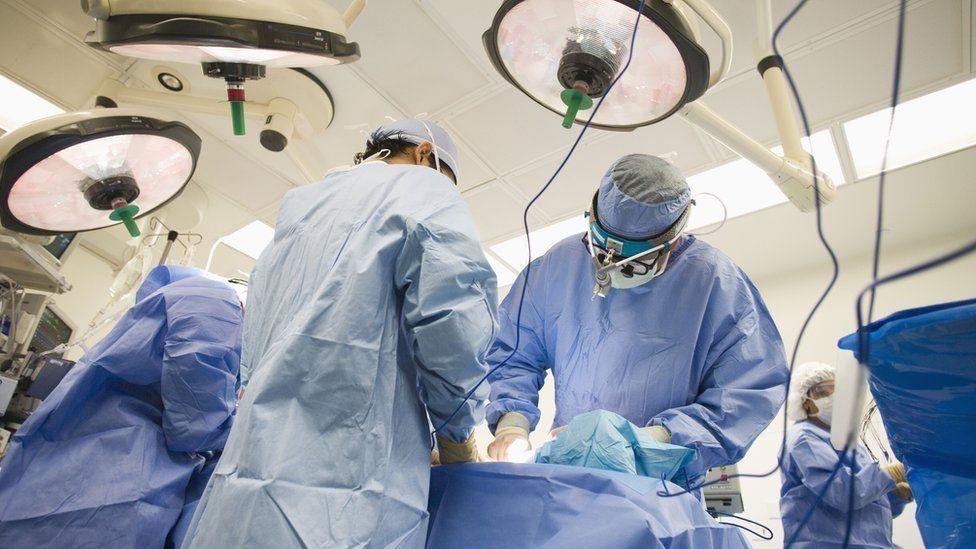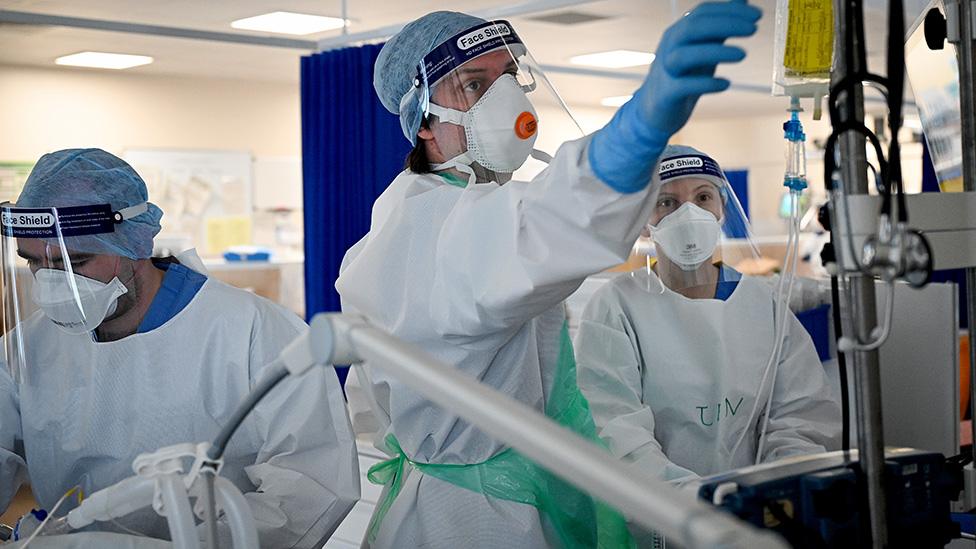I gave up waiting for my NHS op and went private
- Published

Sue Stenton was told by her GP that it would be at least two-and-a-half years to get hip surgery on the NHS
Sue Stenton was told by her GP that it would be at least two-and-a-half years to have hip surgery on the NHS so she decided to use her savings to get the operation done privately.
Sue said that, for two years before her hip operation in December, "the pain impacted on every aspect of everyday life".
The 61-year-old, from Burntisland in Fife, said she struggled to move more than 10 steps and could hardly walk around the house.
"I decided I could not carry on like it for years," she said.
"Being in constant pain was depressing and not being able to exercise made the weight pile on, which also affected my mental wellbeing."
After approaching a private company, Sue was advised to have a hip replacement in two months due to how severe the arthritis was in her right hip, with the procedure costing her £14,600.
"It is wrong that this was the only route I felt was open to me," she said.
"I fully appreciate the effects the pandemic has had on the NHS, but I also feel this is being used as an excuse for the delays in treatment."
Following the Covid pandemic, the NHS has seen a hike in the number of people waiting longer for operations.
This has left some patients with the financial means looking at alternatives.
It is understood one Scottish health board recently surveyed patients on its orthopaedics waiting lists and found that about 30% were considering going private for treatment.
'Reflects the desperation'
Alastair Murray, a consultant surgeon and chairman of Scottish Committee of Orthopaedics and Trauma, said this was a "reasonable reflection" of what surgeons were seeing across the country.
The Scottish government said it was"working hard with NHS boards to abolish excessively long waits" for operations and pointed to four new national treatment centres opening in the next year as one example of this.
At the end of March, more than 553,000 were waiting for outpatients or inpatients treatment, equivalent to about one in 10 of the population.
The waiting list number is the highest since statistics were recorded in their current form about a decade ago.
Doctors claim it will take years to get back to the 2019 waiting times levels.

Mr Murray said the fact that people were considering going private for surgery "reflects the desperation many patients feel".
He said: "Orthopaedic clinicians in Scotland do not want to see more patients having to seek private treatment and are committed to trying to provide as much capacity as we possibly can within the NHS.
"Provision of equal access to timely and high quality treatment is very much the shared goal."
Mr Murray said he worried that the impact on people waiting for orthopaedic surgery was not fully appreciated.
NHS recovery plan
He said: "What is less visible, but every bit as serious, is the enormous demand and suffering out there from our patients waiting for planned, essential treatments like hip replacements.
"These people are deteriorating in the community, unable to care for dependents, work or manage their pain."
A Scottish government spokeswoman said: "We are working hard with NHS boards to abolish excessively long waits that have undoubtedly been exacerbated by the impacts of the global pandemic.
"We published an NHS Recovery Plan, setting out our plans for health and social care over the next five years. Backed by over £1bn of funding, the plan will support inpatient, day case, and outpatient activity and the implementation of sustainable improvements and new models of care.
"This includes the National Treatment Centre Programme, which will deliver capacity for ring-fenced elective activity. Four centres will open in the next year in NHS Fife, NHS Highland, NHS Forth Valley and NHS Golden Jubilee specialising in orthopaedics, including hip and knee surgery."
Related topics
- Published3 May 2022

- Published31 May 2022

- Published23 September 2021
